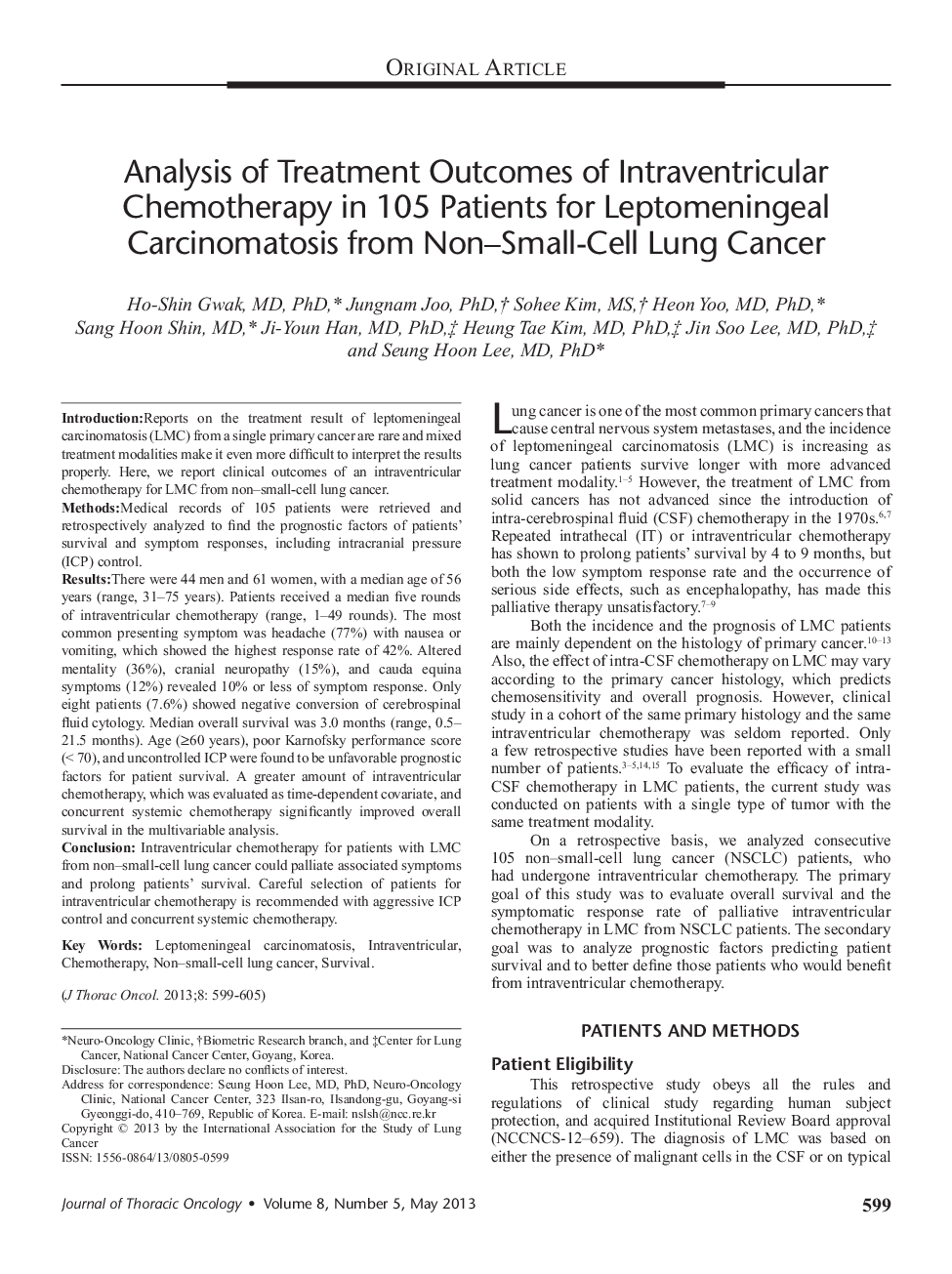| Article ID | Journal | Published Year | Pages | File Type |
|---|---|---|---|---|
| 3990270 | Journal of Thoracic Oncology | 2013 | 7 Pages |
IntroductionReports on the treatment result of leptomeningeal carcinomatosis (LMC) from a single primary cancer are rare and mixed treatment modalities make it even more difficult to interpret the results properly. Here, we report clinical outcomes of an intraventricular chemotherapy for LMC from non–small-cell lung cancer.MethodsMedical records of 105 patients were retrieved and retrospectively analyzed to find the prognostic factors of patients’ survival and symptom responses, including intracranial pressure (ICP) control.ResultsThere were 44 men and 61 women, with a median age of 56 years (range, 31–75 years). Patients received a median five rounds of intraventricular chemotherapy (range, 1–49 rounds). The most common presenting symptom was headache (77%) with nausea or vomiting, which showed the highest response rate of 42%. Altered mentality (36%), cranial neuropathy (15%), and cauda equina symptoms (12%) revealed 10% or less of symptom response. Only eight patients (7.6%) showed negative conversion of cerebrospinal fluid cytology. Median overall survival was 3.0 months (range, 0.5–21.5 months). Age (≥60 years), poor Karnofsky performance score (< 70), and uncontrolled ICP were found to be unfavorable prognostic factors for patient survival. A greater amount of intraventricular chemotherapy, which was evaluated as time-dependent covariate, and concurrent systemic chemotherapy significantly improved overall survival in the multivariable analysis.ConclusionIntraventricular chemotherapy for patients with LMC from non–small-cell lung cancer could palliate associated symptoms and prolong patients’ survival. Careful selection of patients for intraventricular chemotherapy is recommended with aggressive ICP control and concurrent systemic chemotherapy.
